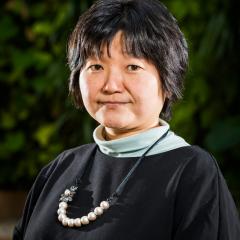As one of Australia's leading research-intensive economics schools, we bring an innovative, agenda-setting perspective that enriches our teaching and engagement with the wider community through joint discovery, consulting and other outreach activities.
According to Research Papers in Economics (RePEc) at July 2025, we ranked:
- #3 in Australia and #61 in the world: Top Economics Departments
- #5 in the world: efficiency and productivity
- #27 in the world: cognitive and behavioural economics
- #29 in the world: environmental economics
- #32 in the world: game theory
Research strengths
The School’s economic theory research group is the strongest in Australia and competes internationally. The group is working in a range of areas including the study of the foundations of strategic behaviour (game theory), individual behaviour under uncertainty (decision theory) and the study of markets (mechanisms of design and auction theory). Research in economic theory at UQ has far-reaching implications for policy development in areas such as climate change, superannuation, taxation, competition policy and regulation. In addition, the School houses the Gambit software tools for game theory and related tools for computation of Nash equilibria of strategic games as part of its collaboration with the University of Texas.
Macroeconomic theory
Macroeconomics is a branch of economics that deals with the issues of an economy as a whole, rather than those of individual agents or specific markets. Macroeconomics is concerned with the understanding of aggregate phenomena such as economic growth, business cycles, unemployment, inflation, and international trade among others. These topics are of particular relevance for the development and evaluation of economic policy.
Mathematical economics
Mathematical economics provides explicit assumptions and lines of reasoning, exactly understood results that can be used with confidence and novel insights that can be derived from the application of sophisticated methods. Applications include consumer problems, cost minimisation, and dynamic programming for dynamic economies.
Microeconomic theory
Researchers in this field study the way market mechanisms drive individuals, households and firms to make decisions concerning the allocation of scarce resources. Areas of particular research interest include choice under uncertainty, competition and regulation, markets under asymmetric information (including the analysis of auction and auction-like markets), efficiency and the provision of public goods. Theoretical analysis of firm behaviour in non-competitive markets relies heavily on game theory.
Researchers
The School has a long-standing reputation for applied economics research. Its research group in this field is large and the research portfolio diverse. The group has core strengths in agricultural, environmental and resource economics, development and health economics and policy analysis. Significant projects encompass natural resource management, community, rural and international development, unemployment and employment, health, labour markets, commodity markets and financial markets, migration and the delivery of goods and services. In both the short and long-term, the School’s applied economics research program will have ramifications for market regulation, the allocation of income and resources, community development and the provision of public services in areas such as social security, health, defence, education and urban planning.
Applied macroeconomics
Applied macroeconomics deals with the issues of an economy as a whole, rather than those of individual agents or specific markets. It's concerned with understanding aggregate phenomena such as economic growth, business cycles, unemployment, inflation, and international trade, among others. These topics are of particular relevance for the development and evaluation of economic policy.
Agricultural economics
Agricultural economics plays an important role in understanding the development opportunities in less developed countries and in improving rural livelihoods across the globe. Researchers in this field study decision-making and resource allocation in the production, distribution and consumption of agricultural goods and services. Areas of research interest include the allocation and use of land and water resources, climate variability and adaptation, managing risk and uncertainty, resource use externalities and public goods.
Economic development and growth
Economic development and growth is a multi-dimensional concept relating to improvements in human welfare. Researchers in this field are concerned with levels of poverty, inequality, health, education, social justice and unemployment. They investigate legal, institutional and other barriers to the development of efficient production and distribution systems for goods and services. They view economic growth as necessary but not sufficient condition for economic development.
Energy economics
Energy economics deals with the generation, transmission and distribution of energy in economic systems, both nationally and internationally. How contractual and trading systems determine the prices of different forms of energy is a central concern. In relation to this, the design of regulatory regimes and energy policies are of key interest. The environmental impacts of energy consumption have received increasing attention, particularly in relation to the debate concerning the impacts of carbon emissions.
Environment and resource economics
Environmental economics is concerned with the negative consequences of human actions leading to environmental problems including air pollution, deterioration in land and water quality, toxic substances, solid waste, and climate change. Valuation of the environment to enable evaluation of projects when there are environmental impacts is an important component. Natural resource economics is a broader field, encompassing the economically efficient and sustainable allocation of renewable resources and the economically efficient extraction of non-renewable natural resources.
Experimental, behavioural, and evolutionary methods
Experimental economics is a branch of economics that uses controlled experiments to test the validity of economic theories and behavioural assumptions, investigate the performance of different market mechanisms and, ultimately, prompt new behavioural theories to better explain and predict economic behaviour. Experiments make use of monetary incentives and may be conducted in the laboratory or in the field.
Applied Health Economics and Health Econometrics
Health economists are concerned with the allocation of scare healthcare resources. Research in this field tends to focus on the demand for and supply of health care services and measurement issues in health outcomes. This research is used to inform health care policy relating to health insurance, healthcare financing and the efficiency of health service provision. Applied health economics across the lifespan and applied health econometrics methodology are central to providing causal effects and policy evidence for decision makers in healthcare and industry.
Macroeconomics
Macroeconomics is a branch of economics that deals with the issues of an economy as a whole, rather than those of individual agents or specific markets. Macroeconomics is concerned with the understanding of aggregate phenomena such as economic growth, business cycles, unemployment, inflation, and international trade among others. These topics are of particular relevance for the development and evaluation of economic policy.
International economics
International economics is the field of study to understand the causes and consequences of economic interaction between countries. Researchers in the international trade field focus on gains from trade and factor movements (e.g. immigration, outsourcing), the impact of trade on economic growth, and effects of trade policy including tariffs, regional and multilateral trade agreements (e.g. NAFTA and WTO). International macroeconomics deals with the balance of payments, exchange rates and macroeconomic policies including optimum currency areas and global financial crises under the open-economy.
Productivity and efficiency analysis
Productivity and efficiency analysis researchers develop various theories as well as do empirical analysis involving measures of absolute and relative economic performance, including measures of productivity and efficiency for various economics systems (e.g. firms, farms, banks, entire industries or entire countries). Some studies involve measurement of productivity growth that decompose into measures of technological change, efficiency change and other sources. Estimation methods usually involve intensive use of various econometric techniques, statistical and economic theory for index numbers and mathematical programming methods (linear, non-linear, integer and mixed programming optimisations).
Within the field of econometrics, the School's researchers are conducting frontier methodological research in areas such as the measurement of productivity and efficiency, international price comparisons and real income as well as how to deal with missing data.
Cross-sectional analysis
Cross-sectional analysis examines the empirical relationship between economic variables at a particular point in time. At the microeconomic level, researchers might be interested in the relationship between household expenditure and income. At the macroeconomic level, interest may centre on inter-country comparisons of price levels or GDP. Econometric models range from simple multiple regression models to censored regression models and models of multiple choice.
Econometric and statistical methods
Econometrics involves the application of statistical methods in an economics context, with focus on causal inference as well as prediction. Historically, research in this field has focused on the development of sampling theory estimators with the properties of consistency, unbiased, efficiency and asymptotic normality. More recently, many researchers in the field have switched their focus to Bayesian methods for statistical inference.
Macroeconometric analysis
Researchers in this field use statistical techniques to empirically investigate questions in macroeconomics. Such questions might include, "do the features (or restrictions) implied by macroeconomic theory have empirical support?" Or, "which of these features have empirical support?" Other purposes are to characterise how the economy as a whole, unemployment, interest rates or perhaps consumption, might respond to policy or external shocks.
Panel data analysis
Panel data refers to data collected on a number of individuals over a number of time periods (e.g. the Household, Income and Labour Dynamics in Australia Survey that has been conducted annually since 2001). With repeated observations of enough cross-sections, panel analysis permits the researcher to study the dynamics of change with short time series. A vast range of econometric techniques have been extended to allow the specification, estimation, and inference in the context of models that include individual (firm, person, etc.) effects.
Time-series analysis and forecasting
Researchers in this field use statistical methods to estimate mathematical models and generate forecasts. A feature of these models is that they have a strong foundation in economic theory. Examples include microeconomic models of production and consumer demand, macroeconomic models of national income, saving and investment, and computable general equilibrium models of trade, development and the environment.
Researchers
Our research centres and groups
These groups enable a critical mass of researchers with common research interests and expertise to facilitate team-based discovery and collaboration and to bring the benefits of this research to the external community through consulting and other engagement activities.
General enquiries
Phone: +61 7 3365 6570
Fax: +61 7 3365 7299




























